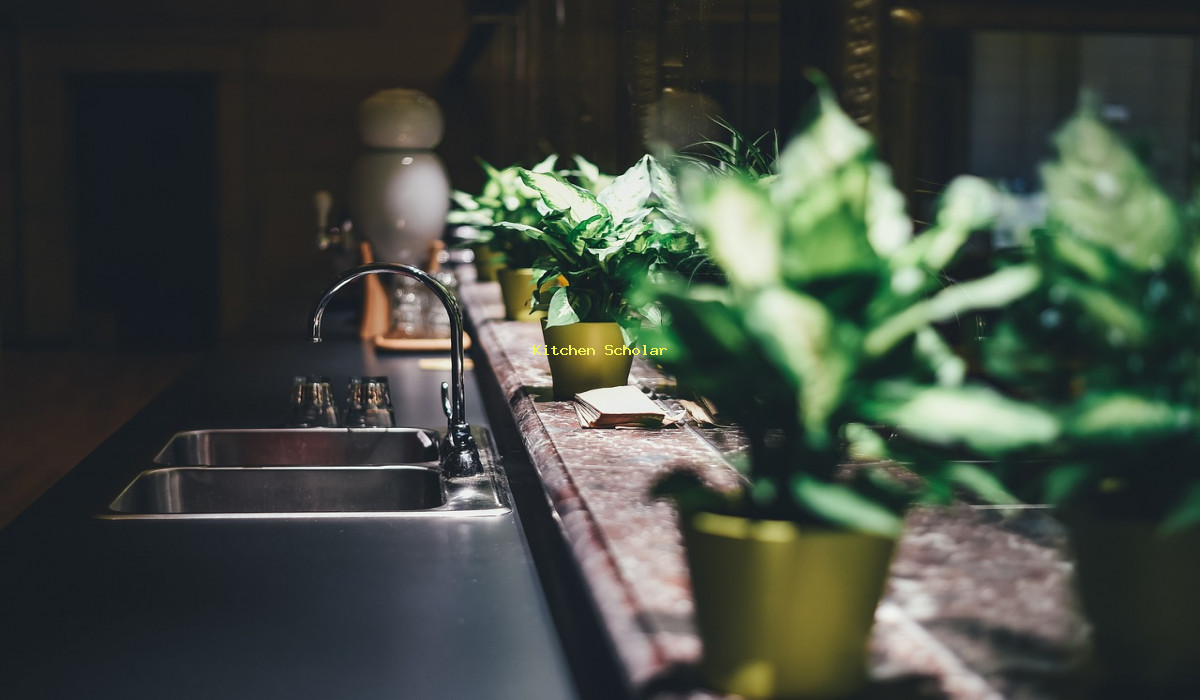Transforming Kitchen Waste into Fertile Manure: The Simple 5-Step Process. Are you looking for an easy, eco-friendly way to dispose of your kitchen waste? Look no further! Learn how your food scraps can be turned into nutrient-rich manure for your garden. It’s a win-win for both your home and the environment. Find out how in this informative article Kitchen Waste into Fertile Manure. Transforming Kitchen Waste into Fertile Manure: The Simple 5-Step Process
Kitchen Waste into Fertile Manure
There is no denying the fact that our planet is facing an environmental crisis. From climate change to deforestation, we are constantly reminded of the impacts of human activities on the Earth. In light of this, it has become more important than ever to adopt sustainable practices in our daily lives, and one way to do so is by properly managing our kitchen waste.

When we think about waste, our first thought might be to throw it away and forget about it. However, kitchen waste can actually be transformed into a valuable resource – manure. Yes, you read that right! Kitchen waste has the potential to become organic, nutrient-rich fertilizer for our gardens, making it a valuable asset for sustainable gardening and agriculture. In this article Kitchen Waste into Fertile Manure, we will take an in-depth look at how kitchen waste becomes manure and its benefits for the environment.
What is kitchen waste?
Before we dive into the process of how kitchen waste becomes manure, let’s first understand what it actually is. Kitchen waste, also known as organic or food waste, refers to any leftover food or food scraps that are generated in our kitchens. This can include vegetable peels, fruit scraps, eggshells, tea bags, coffee grounds, and much more. Instead of throwing these scraps in the trash, they can be collected and used to create nutrient-rich manure.
The process of composting
The transformation of kitchen waste into manure is known as composting. Composting is a natural process of decomposition where organic materials are broken down by microorganisms, resulting in a nutrient-rich soil amendment. There are three main components needed for successful composting: carbon, nitrogen, and oxygen. Kitchen waste provides the necessary nitrogen component, while carbon can be obtained from materials such as dry leaves, hay, or shredded paper Kitchen Waste into Fertile Manure. Oxygen is present in the air, and it is important to regularly turn and mix the compost pile to ensure proper aeration.
The process of composting involves creating layers of kitchen waste and carbon-rich materials, also known as “brown” and “green” layers Kitchen Waste into Fertile Manure, respectively. Continuously adding these layers, along with regular mixing, will facilitate the decomposition process. As the microorganisms break down the organic materials, they generate heat, which is important for the composting process. The temperature inside the compost pile will rise, reaching up to 140 degrees Fahrenheit, which helps kill off harmful bacteria and pathogens.
Benefits of composting kitchen waste
1. Reduces landfill waste
When we throw our kitchen waste in the trash, it ends up in a landfill where it decomposes and releases methane, a potent greenhouse gas that contributes to climate change. By composting our kitchen waste, we can divert it from landfills and reduce our carbon footprint.
2. Healthy soil amendment
Compost, also known as “black gold,” is a rich source of nutrients for plants, making it a valuable soil amendment for gardeners and farmers. Kitchen waste contains a variety of nutrients that are necessary for plant growth, such as nitrogen, phosphorus, and potassium. Composting these scraps creates a nutrient-rich fertilizer that is beneficial for plant growth and can improve soil health.
3. Cost-effective
Composting is a cost-effective way to manage kitchen waste. Instead of purchasing chemical fertilizers, which can be harmful to the environment Kitchen Waste into Fertile Manure, you can create your own nutrient-rich compost at home for free. This not only reduces your carbon footprint but also helps save money in the long run.
4. Reduces the need for chemical fertilizers
Chemical fertilizers can have detrimental effects on the environment, including water pollution and soil degradation.

By using compost as a natural alternative, we can reduce the need for these harmful fertilizers and minimize their negative impacts on the planet.
5. Encourages biodiversity
Composting creates a diverse habitat for microorganisms, worms, and insects, which are important for a healthy ecosystem. These creatures help break down the organic materials, and their presence in the soil is beneficial for plant growth.
6. Easy to maintain
Composting might sound intimidating, but it is actually a simple and low-maintenance process. All it requires is a little bit of time and effort to create a healthy compost pile, which can be easily maintained with regular turning and mixing.
7. Can be done in small spaces
You don’t need a big backyard or garden to compost your kitchen waste. There are various methods of composting, such as vermicomposting, that can be done indoors or in small spaces, making it accessible to everyone.
8. Reduces the need for chemical pesticides
Compost contains beneficial microorganisms that can help suppress harmful plant diseases and pests. By using compost, we can reduce the need for chemical pesticides Kitchen Waste into Fertile Manure, which can be harmful to the environment and human health.
9. Improves soil structure
Kitchen waste contains organic matter, which is essential for improving soil structure. Composting helps create a soil that is loose and well-aerated, making it easier for plant roots to grow and absorb nutrients.
10. Lowers water usage
Compost retains moisture in the soil, reducing the need for frequent watering. This can be especially beneficial in dry or arid regions, where water conservation is crucial.
11. Decreases erosion
The nutrient-rich soil created by composting can help prevent erosion in gardens and agriculture fields. This is due to the improved soil structure and increased plant growth, which helps hold the soil in place.
12. Recycles nutrients
By composting kitchen waste, we are essentially recycling the nutrients from the scraps back into the earth, closing the nutrient cycle. This creates a sustainable and circular system of nutrient management.
13. Non-toxic and safe
Unlike chemical fertilizers and pesticides Kitchen Waste into Fertile Manure, compost is non-toxic and safe to use around children and pets. This eliminates the risk of exposure to harmful chemicals and promotes a healthier environment for all living beings.
14. Reduces greenhouse gas emissions
As mentioned earlier, composting kitchen waste reduces the amount of methane emitted from landfills, which is a potent greenhouse gas.

By composting, we are helping to mitigate the effects of climate change.
15. Encourages a sustainable lifestyle
Composting kitchen waste is just one small step towards a more sustainable lifestyle. By participating in this eco-friendly practice, we can inspire others to do the same and promote a more environmentally conscious society.
How to compost kitchen waste?
Now that we understand the benefits of composting kitchen waste, let’s take a look at some simple steps to get started.
Step 1: Choose a composting method
As mentioned earlier, there are various methods of composting, and you can choose one that fits your space and lifestyle best. Some popular methods include backyard composting, vermicomposting, and bokashi composting.
Step 2: Collect kitchen waste
Designate a container or bin in your kitchen for collecting kitchen waste. This can be a compost bin specifically designed for this purpose Kitchen Waste into Fertile Manure, or simply a bucket or container with a lid. Make sure to include a mix of “green” and “brown” materials in equal proportions to create a balanced compost.
Step 3: Create a compost pile
If you are using a backyard composting method, you can start by creating a compost pile in a designated area in your yard. Layer your kitchen waste with “brown” materials and make sure to regularly mix and turn the pile to facilitate the decomposition process.
Step 4: Monitor and maintain
Check on your compost pile regularly to ensure that it is well-aerated and moist. Add water if needed, and continue to mix and turn the pile to speed up the decomposition process.
Step 5: Use your compost
After a few weeks or months, depending on the composting method and the materials used, your compost should be ready to use. Use it as a top dressing for your garden, mix it into potting soil, or spread it in your lawn.
Final thoughts
Composting kitchen waste is a simple yet impactful way to reduce our carbon footprint and contribute to a more sustainable future. By properly managing our kitchen waste, we can create a valuable resource – manure – that benefits both our gardens and the environment. So, next time you think about throwing your banana peel or coffee grounds in the trash Kitchen Waste into Fertile Manure, remember the potential it holds for creating organic, nutrient-rich fertilizer for your plants. Join the composting movement and play your part in building a more sustainable world!
Make kitchen waste compost easily at home (English subtitles )
Transforming Kitchen Waste into Fertile Manure: The Simple 5-Step Process Make kitchen waste compost easily at home (English subtitles ) Video Transforming Kitchen Waste into Fertile Manure: The Simple 5-Step Process
Transforming Kitchen Waste into Fertile Manure: The Simple 5-Step Process. can be turned Transforming Kitchen Waste into Fertile Manure: The Simple 5-Step Process
Transforming Kitchen Waste into Fertile Manure: The Simple 5-Step Process
Are you looking for an easy, eco-friendly way to dispose of your kitchen waste? Look no further! Learn how your food scraps can be turned into nutrient-rich manure for your garden. It’s a win-win for both your home and the environment. Find out how in this informative article.. Manure Transforming Kitchen Waste into Fertile Manure: The Simple 5-Step Process
What is kitchen waste and why is it important for it to become manure?
Answer: Kitchen waste refers to the organic waste that is generated from food preparation and cooking. This waste can include leftover fruits and vegetables Kitchen Waste into Fertile Manure, eggshells, coffee grounds, and more. It is important for kitchen waste to become manure because it can be used as a natural fertilizer to enrich soil and promote plant growth.
How does kitchen waste become manure?
Answer: Kitchen waste can become manure through the process of composting. This involves layering organic waste with dry materials such as leaves or straw, and regularly turning the mixture to facilitate the breakdown of the waste into nutrient-rich compost. The end result is a dark, crumbly material that can be used as a fertilizer in the garden.
What are the benefits of using kitchen waste as manure?
Answer: Using kitchen waste as manure has several benefits. Firstly, it helps reduce the amount of waste that goes into landfills. Secondly, it reduces the need for chemical fertilizers, which can be harmful to the environment. And finally, the nutrients in the manure can improve soil quality, leading to healthier and more productive plants.
Are there any types of kitchen waste that should not be turned into manure?
Answer: Yes, there are some types of kitchen waste that should not be used as manure. These include meat, dairy, oils, and fats, as they can attract pests and create unpleasant odors in the compost. It is best to stick to fruit and vegetable scraps, coffee grounds, and other plant-based waste when creating manure from kitchen waste.
Can anyone make kitchen waste into manure?
Answer: Yes, anyone can make kitchen waste into manure. Composting is a simple and easy process that can be done at home with minimal tools and knowledge. Kitchen Waste into Fertile Manure, it is a great way to reduce waste and create a natural fertilizer for your plants. There are also many resources available online to guide you through the process. Transforming Kitchen Waste into Fertile Manure: The Simple 5-Step Process

Transforming Kitchen Waste into Fertile Manure: The Simple 5-Step Process
Kitchen Waste Turned into Nutrient-Rich Manure
Kitchen waste, commonly referred to as food waste, is the discarded organic material from food preparation or meals. This waste can include everything from fruit and vegetable scraps to meat, bones, and dairy products. Disposing of this waste in landfills is not only wasteful but also harmful to the environment. Instead, it can be repurposed into nutrient-rich manure through a process called composting. In this blog post, we will delve into what composting is, how it works, and the benefits of turning kitchen waste into manure.
What is Composting?
Composting is a natural process in which microorganisms decompose organic waste, such as kitchen scraps, and turn it into a nutrient-rich soil amendment. This process mimics the natural decomposition of organic materials in nature but is accelerated through human intervention. Composting can be done on a large scale in industrial facilities, but it can also be done on a smaller scale in households.
How Does Composting Work?
Composting requires three key components: air, water, and organic material. When these elements are combined and properly managed, microorganisms break down the waste and turn it into compost, a crumbly, dark, and nutrient-rich material that can be used as a soil amendment.
The process of composting involves four stages Kitchen Waste into Fertile Manure: preparation, active stage, curing, and maturation.
Preparation:
The first step in composting is preparing the bin or container Kitchen Waste into Fertile Manure. A good composting bin should have enough air circulation and drainage holes, be made of a material that can retain heat, and be easy to access for turning and harvesting the compost.
Next, the bin is filled with a layer of brown materials, such as dried leaves or shredded paper, followed by a layer of green materials, such as kitchen scraps and grass clippings. This layering technique provides a balanced carbon to nitrogen ratio, essential for the breakdown of organic matter.
Active Stage:
During this stage, microorganisms, including bacteria, fungi, and insects, start breaking down the organic materials. They need the right amount of moisture, oxygen, and temperature to thrive and do their job. The ideal temperature for composting is between 120-160 degrees Fahrenheit. Regular turning of the pile helps to aerate it, ensuring that the materials do not become compact and allowing the microbes to access oxygen.
Curing:
After a few weeks, the composting process slows down Kitchen Waste into Fertile Manure, and the materials begin to resemble finished compost. The pile is then left to cure, during which time the microbes continue breaking down the materials and producing a nutrient-rich product.
Maturation:
Once the compost has finished curing, it is ready for use. The compost should be dark, crumbly, and have a pleasant earthy smell. The maturation stage can take anywhere from 2 months to a year, depending on the materials used, the size of the pile, and the management of the compost.
Benefits of Composting Kitchen Waste
Composting kitchen waste has numerous benefits, both for individuals and the environment. Here are some of the key benefits of turning kitchen waste into manure:
Reduces Waste in Landfills:
Organic waste makes up a significant portion of landfills and contributes to the production of greenhouse gases, such as methane Kitchen Waste into Fertile Manure, which has a higher global warming potential than carbon dioxide. Composting diverts this waste from landfills, reducing its harmful effects on the environment.
Produces Nutrient-Rich Manure:
Composting provides a natural and sustainable way to recycle organic waste and produce a nutrient-rich soil amendment. This compost can be used as a fertilizer for plants, providing them with essential nutrients and improving soil structure.
Reduces Chemical Use:
The use of chemical fertilizers and pesticides has harmful effects on the environment and human health. By using compost, we can reduce the need for these chemicals, promoting a more eco-friendly and sustainable way of gardening.
Saves Money:
Composting can save you money in the long run by reducing the need for chemical fertilizers and improving the health of your plants, leading to lower maintenance costs.
Promotes Sustainability:
Composting is a great way to reduce waste and promote a more sustainable lifestyle. By turning kitchen waste into manure, we are closing the loop and creating a circular system where waste becomes a resource.
How to Compost Kitchen Waste at Home
Composting at home is easy and can be done in just a few simple steps Kitchen Waste into Fertile Manure.
Step 1: Choose a Bin
The first step is to choose a composting bin that works best for your household’s needs. You can purchase a ready-made bin or make one yourself using materials such as wood, wire mesh, or a plastic container.
Step 2: Collect Your Materials
The key to composting is having a balanced mix of brown and green materials. Brown materials include leaves, twigs, shredded paper, and cardboard, while green materials are typically kitchen scraps and fresh grass clippings Kitchen Waste into Fertile Manure. Avoid adding meat, dairy, or oily foods to your compost bin as they can attract pests.
Step 3: Layering and Turning
Start by adding a layer of brown materials to the bottom of your compost bin, followed by a layer of green materials. Continue alternating between brown and green layers until the bin is full. Make sure to turn or mix the contents of the bin regularly to aid in the decomposition process.
Step 4: Harvesting your Compost
Your compost is ready when it is dark, crumbly Kitchen Waste into Fertile Manure, and has a rich earthy smell. You can use your compost in your garden or potted plants to provide essential nutrients to your plants and improve soil health.
In Conclusion
Composting kitchen waste is a simple and effective way to reduce waste, save money, and promote sustainability. By following the easy steps outlined in this article Kitchen Waste into Fertile Manure, you can turn your food scraps into nutrient-rich manure and contribute to a healthier planet. So next time you’re in the kitchen, think twice before throwing away those vegetable peels or eggshells and start composting instead! Transforming Kitchen Waste into Fertile Manure: The Simple 5-Step Process
